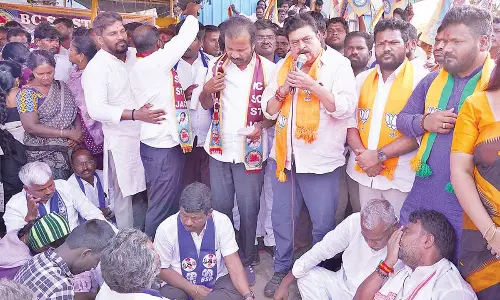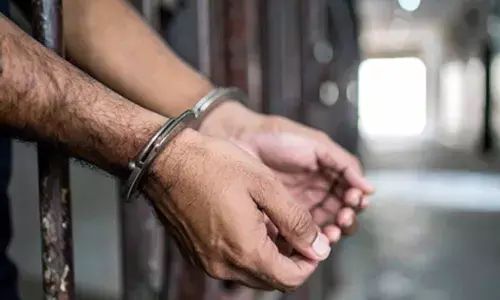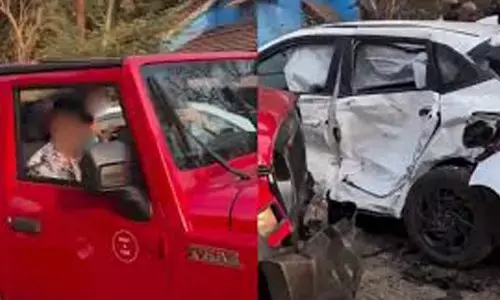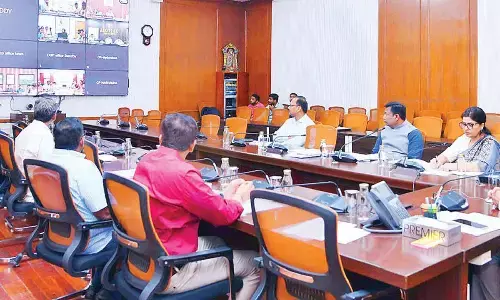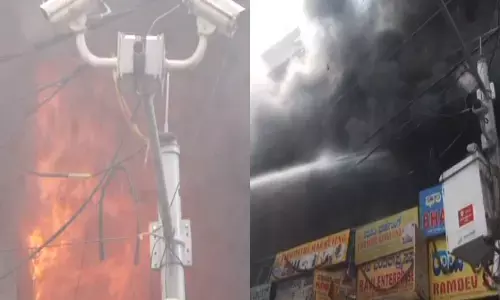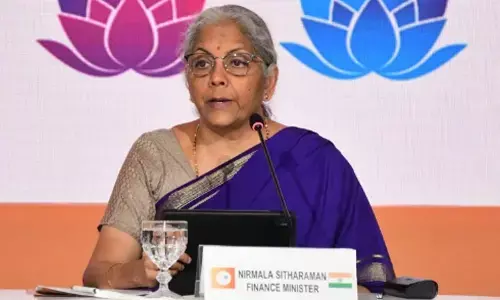Politics of pragmatism wins N-E for BJP
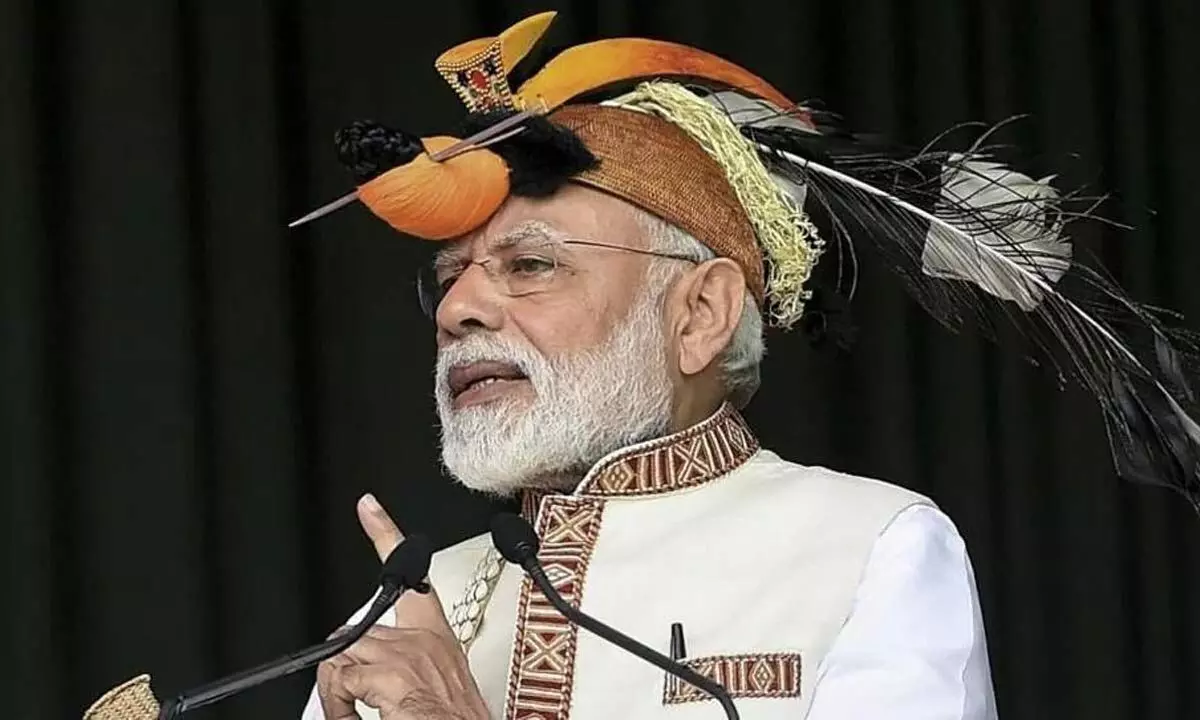
PM Narendra Modi
The BJP has successfully retained its firm control in Tripura and Nagaland, while it is in talks with old ally National People’s Party to form the government in Meghalaya.
The BJP has successfully retained its firm control in Tripura and Nagaland, while it is in talks with old ally National People's Party to form the government in Meghalaya. Its success in retaining its hold over the North Eastern States should not be viewed with a prejudiced mind or from a narrow political angle. Making simple comments such as those by Congress party – "they are small states. Winning or losing there does not matter" – indicates the failure of the grand old party to realise the importance of the N-E states in terms of security of the country.
The N-E states are highly crucial for India. One fails to understand why the veterans of Congress party, despite knowing this fully, continue to talk in a flippant manner that would rub salt into the wounds of the people of N-E. One fails to understand why Congress has dug its own grave and is staring at bleak future. Apparently, the Bharat Jodo Yatra has not achieved its objective.
The N-E region is deficient in resources. Though it is bordering China, infrastructural development is negligible. It was treated as a frontier rather than building trade corridors. These areas remained underdeveloped and that helped the Chinese troops to gain easy access and it is now bold enough to make repeated attempts to change the status quo with India. No adequate efforts were made to provide infrastructure facilities and connectivity to the region along with financial initiatives. Plus, not much was done in the direction of cutting the links between the rebel groups and their foreign sponsors.
The Modi government in the last seven years adopted the Act East (2014) policy and made serious efforts to link its north-eastern states with neighbouring Southeast Asian countries. It also focussed on developing these states. It worked towards striking a balance between development and peace. Of course, still a lot needs to be done in this direction. Still many insurgent groups are said to be getting the support from countries like China.
The major and bold act by the government was when terrorists ambushed a colonel of the 46 Assam Rifles and his family in Manipur in November 2021. Six jawans of the Assam Rifles were also injured in the incident. Two Manipur-based terrorist organizations, the People's Liberation Army and the Manipur Naga People's Front, claimed responsibility for the brazen attack. It is believed that most of these organizations were bolstered by the separate forces with the connivance of ethnic elements from Myanmar.
However, the Sun has now started rising in the N-E states where relatively peaceful atmosphere prevails now and signs of economic development are visible. These states have now started feeling that they are part of the mainstream development.
In short, BJP won in NE because it changed the rules of the political landscape in the region and not just because of Modi's popularity. Modi got popularity because of the slew of measures taken under his Act East Policy. As Modi himself said on Thursday the central government had taken up a number of central schemes like power and tap water even to the tribal areas. Adding to that, the RSS had done extensive work in enlisting the support of the people of the region particularly, Bengali settlers and continuously worked with tribal communities—including the dominant Christian community in Nagaland and Meghalaya. As the stakes were high for the BJP, it had increased allocation by five times in the Union Budget 2023-24 under Prime Minister's Development initiative meant to develop roads, bridges, airports and create job opportunities.
The BJP had failed to win even a single seat in 2013. But later it defeated the left front and achieved the crucial victory. This time it went in for effective deployment of a team of BJP leaders such as Assam CM Himanta Biswa Sarma, Sambit Patra, Mahesh Sharma, Pankaj Singh, Rituraj Sinha and Nalin Kohli with clear cut task of going all out to see that the Lotus blooms worked for the BJP. Led by this team, the saffron party had run a determined campaign supported by the Union Minister G Kishan Reddy under the direct guidance of Union Home Minister Amit Shah. It also ensured that free ration reached even interior parts of the region and succeeded in addressing the grievances of the people. The RSS helped in converting these gains into acceptance of BJP by voters which led to defeat of the combined might of left and Congress. It also succeeded in consolidating Bengali voters. In Meghalaya, it contested separately from former ally Conrad Sangma's NPP, making it clear right from the beginning that even a hung assembly will be Advantage BJP.
The North-East results reinforce the position of Assam Chief Minister Himanta Biswa Sarma, a former Congressman who opened the gateway to the region for the BJP with his defection in 2015 and carved a niche for himself. It was he who handled the stitching arrangements. In Tripura, where the BJP had won a landslide victory in 2018, ending decades of Left rule, the national party has seen some losses but still managed the numbers in the state dominated by Bengali speakers.
Analysts say that one of the aspects that helped the BJP was its outreach to the people, saying that BJP was not opposed either to eating of beef or the church and this point was effectively stressed in Meghalaya and Nagaland.
All in all, the North-East has given a satisfactory result for the BJP. It is now well entrenched in Tripura. The N-E elections have a lesson for the opposition parties. Since more polls are on the cards this year before the country goes for Lok Sabha polls, the opposition parties may still succeed in emerging stronger if they adopt politics of pragmatism and focus on promises of infrastructural development and assured and timely delivery of the schemes they have in mind. If that happens, India can hope to have a stronger opposition than what it has now. A strong opposition is a must for any democratic country. But the way each of the popular and little promising leaders are pulling in different directions and Congress moving in entirely different direction raises doubts on the possibility of their unity. Its time to bury differences, put ego on back burner and provide a strong united opposition. But the trillion-dollar question is will that happen before 2024 elections?


